2021
POSTDOCTORAL FELLOWSHIPS
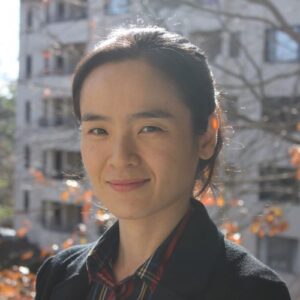 |
Yuan Yi will receive a D. Kim Foundation Postdoctoral Fellowship for the academic year of 2021-2022. Her book project, “Industrial Craft: The Global Making of Chinese Cotton Mills, 1877- 1937,” investigates the mechanization of Chinese cotton spinning with emphasis on the Sino-American exchange of spinning technologies, cotton varieties, and technical experts. By examining the drawings of spinning machines, manuals, engineering journals, agricultural reports, and contracts between American machine firms and Chinese cotton mills, this study will show how the Chinese strove to solve technological problems specific to their factories through continued modification and repair of foreign machines. She argues that what enabled the mechanization was the multiple layers of knowledge obtained from hands-on experience and formal engineering education, and that Chinese workers had been active participants in this global technology transfer. |
DISSERTATION FELLOWSHIPS
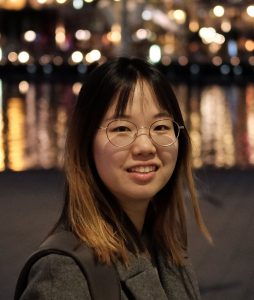 |
Seung Hee Cho will receive a D. Kim Foundation Dissertation Fellowship for the academic year of 2021-2022. The title of her dissertation is, “Testing Futures: Jeju Island as Experimental Subject of Energy Policy.” It will examine the political, environmental, and technological histories of making Jeju Island an experimental subject of green energy futures. In 2012, Jeju Island was declared to become a “Carbon-Free Island” by 2030 with wind turbines, electrical vehicles, and smart grids. She argues that the whole process of building this renewable energy policy “test bed,” from selection to implementation, has been closely entangled with Jeju’s political situations with the South Korean government, its ecological traits of an aged volcanic island, and the technological history of electrifying Jeju. |
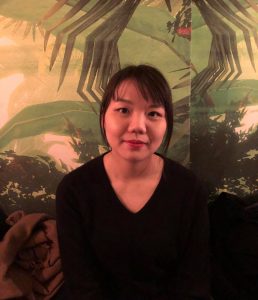 |
Sau-yi Fong will receive a D. Kim Foundation Dissertation Fellowship for the academic year of 2021-2022. The title of her dissertation is, “Guns, Boats, and Diplomacy: Late Qing Dynasty and the World’s Naval Technology, 1861-1911.” It will investigate Qing China’s engagement with an emerging global regime of arms production and arms trading by examining its naval building project in the late nineteenth century. Based on Chinese, Japanese, British and German sources, this study will analyze how Qing diplomats and naval students cultivated close-knit networks with European diplomats, merchants, shipbuilders and naval officers both at home and overseas. She intends to shed new light on the global history of arms trading and military industrialization, the politics of transnational technological transfer, and nineteenth-century conceptions of military secrecy and strategic security in the age of empires. |

|
John H. Hayashi will receive a D. Kim Foundation Dissertation Fellowship for the academic year of 2021-2022. The title of his dissertation is, “Hydraulic Taiwan: Water and Colonial Conservation under Japanese and Chinese Nationalist Rule, 1895-1964.” It will examine water conservation as a powerful historical force in Taiwan under Japanese colonial and early Republican Chinese rule. By using various sources in Taiwan, Japan and the US to get a handle on interlinked histories of the region, this study will show tensions between holding water back (as in the case of floods) and directing it towards productive uses (as in the case of irrigation). He argues that Chinese Nationalist administration adopted and adapted blueprints for technocratic rule over Taiwan’s waters from its Japanese predecessor, which illustrates the transwar nature of colonial conservation. |
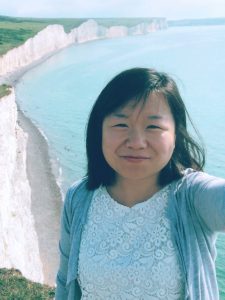 |
Jia Yu will receive a D. Kim Foundation Dissertation Fellowship for the academic year of 2021-2022. The tile of her dissertation is, “Bowu [broad learning] and the Natural World in the Formation of Modern China.” The thesis focuses on the transitional period starting from the 1850s onwards, during which bowu saw profound and rapid transformation in meaning. The history of bowu and the process of its association with natural philosophy and natural history took place before the wider adoption of the term kexue for scientific inquiry in Republican China during the early twentieth century. She suggests that this study helps us better understand the historiography of the introduction, identification, and communication of modern science in China. |
RESEARCH AND TRAVEL GRANTS
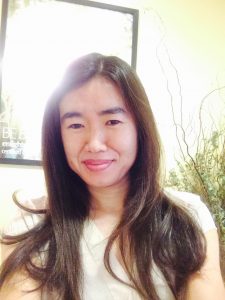 |
Jeannie N. Shinozuka will receive a D. Kim Foundation Traveling/Research grant for the academic year of 2021-2022. Her book project is, “American Biotic Borders: Yellow Peril of Japanese Plants and Insects Along the Migration Frontier, 1890-1959.” She argues that American responses to Japanese plant, insect, and human bodies beginning in the late nineteenth century constitute a powerful historical instance of the centrality of biology and biota (i.e., all biological forms) to race making and racial meanings. She also argues that the exclusionary and highly regulatory policies during the period supported the ideology of American economic, racial, and cultural superiority. She will travel to Japan in the summer of 2021 to visit various archives there and to establish scholarly networks with Japanese research community. |
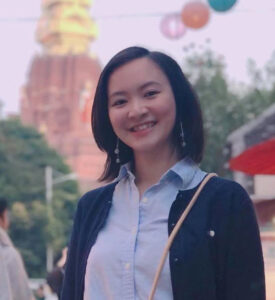 |
Jinghong Zhang will receive a D. Kim Foundation Traveling/Research grant for the academic year of 2021-2022. Her research topic is, “Down to the Roots: Teeth, Dentistry, and Dental Hygiene in Modern China, 1908-1985.” It will examine the historical development of dentistry in twentieth-century China from four dimensions – the institutionalization of Western dental science and dental education, state promotion of dental hygiene under both the Nationalist and Communist governments, the cultural perceptions of teeth in relation to the body, and the commercialization of everyday dental supplies. This study is the first historical study of dentistry and dental hygiene in modern China, a topic that is crucial to understanding the intersection of science, state-building, and society in China’s modernization. She will travel to Chengdu, China for archival research in the summer of 2021. |